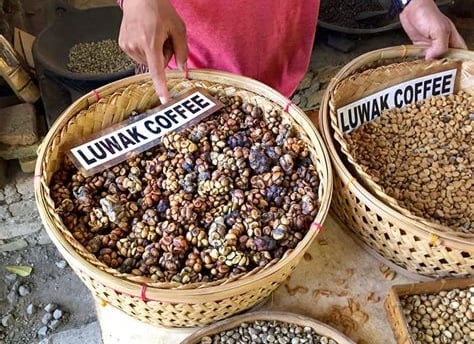Coffee Tales
Black Ivory Coffee is renowned for being the world’s rarest and most expensive coffee. It is produced in northern Thailand by the Black Ivory Coffee Company Ltd. The beans are consumed by elephants and collected from their waste, which is a process that imparts a unique flavor profile to the coffee due to the elephants’ digestive enzymes breaking down the protein in the beans.
The coffee is sold primarily to select five-star hotels and is also available for private consumption in limited quantities through the company’s website. A significant portion of the sales supports The Golden Triangle Asian Elephant Foundation, contributing to elephant healthcare and welfare.
The rarity of Black Ivory Coffee is attributed to the extensive amount of raw coffee cherries required to produce a small amount of finished product, as well as the labor-intensive process of collecting the beans. This exclusivity is reflected in its price, which can reach up to $2,000 per kilogram. Enjoying a cup of Black Ivory Coffee offers not just a distinctive taste but also the satisfaction of contributing to a good cause.




Kopi Luwak, also known as civet coffee, is a unique type of coffee made from beans that have been eaten and then excreted by the Asian palm civet. The process involves the civet consuming ripe coffee cherries, which ferment as they pass through its digestive system. After the cherries are excreted, the beans are collected, cleaned, and roasted to create a coffee that is known for its smooth flavor and lack of bitterness1.
The production of Kopi Luwak has become controversial due to ethical concerns. Traditionally, the beans were collected in the wild from civet feces, but due to increasing demand, civets are often caged and force-fed coffee cherries under inhumane conditions. This intensive farming method has raised significant animal welfare issues and has led to calls for more ethical production practices.
Despite these concerns, Kopi Luwak remains one of the most expensive coffees in the world, with prices ranging from $100 to $600 per pound for farmed beans, and up to $1,300 per kilogram for wild-collected beans. The high cost is attributed to the labor-intensive process of production and the rarity of the beans. However, given the ethical issues, many coffee enthusiasts and experts advise against purchasing Kopi Luwak.
